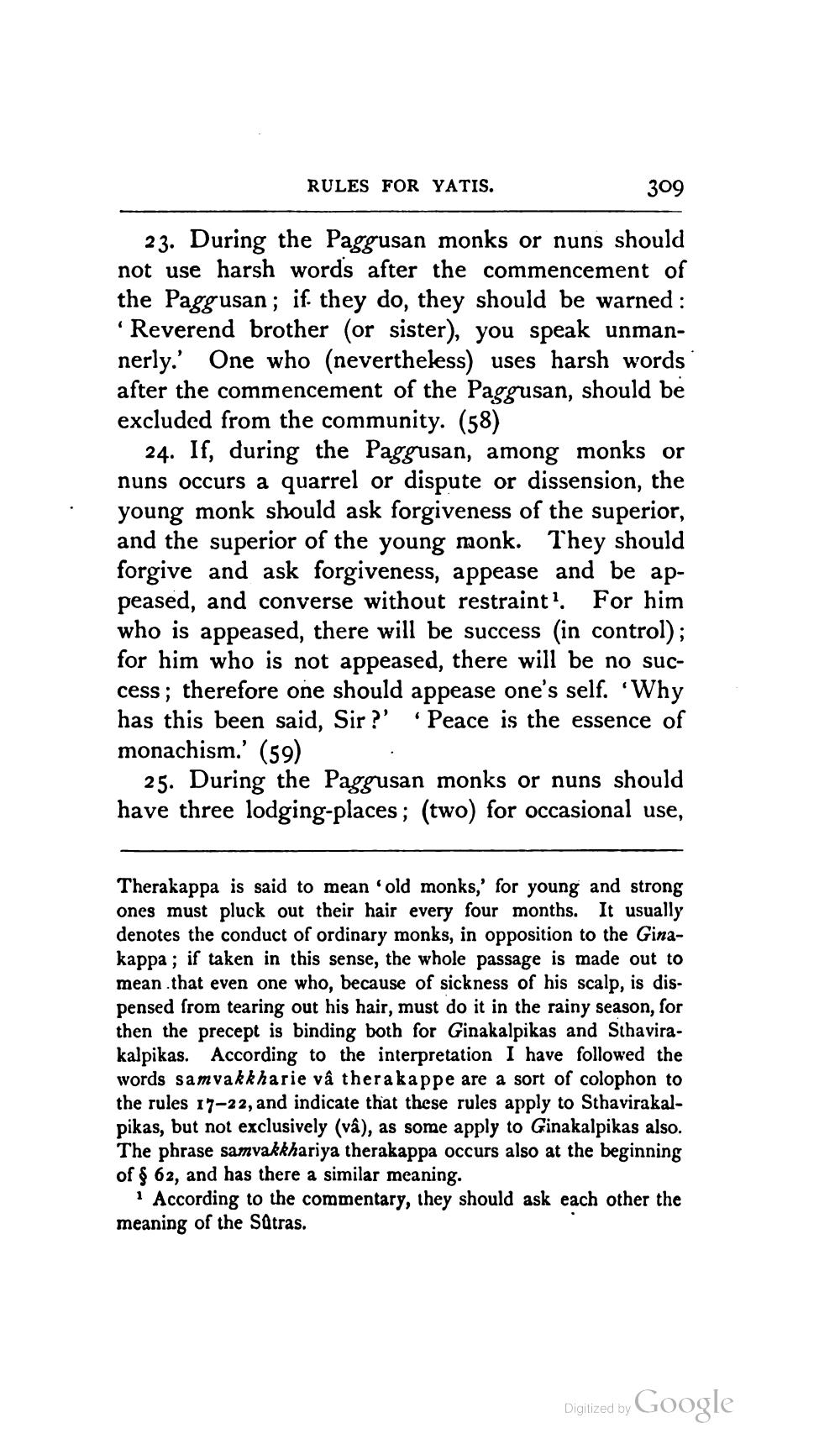________________
RULES FOR YATIS.
309
23. During the Paggusan monks or nuns should not use harsh words after the commencement of the Pagg usan; if they do, they should be warned: "Reverend brother (or sister), you speak unmannerly. One who (nevertheless) uses harsh words after the commencement of the Paggusan, should be excluded from the community. (58)
24. If, during the Paggusan, among monks or nuns occurs a quarrel or dispute or dissension, the young monk should ask forgiveness of the superior, and the superior of the young monk. They should forgive and ask forgiveness, appease and be appeased, and converse without restraint? For him who is appeased, there will be success (in control); for him who is not appeased, there will be no success; therefore one should appease one's self. Why has this been said, Sir ?'Peace is the essence of monachism.' (59)
25. During the Paggusan monks or nuns should have three lodging-places; (two) for occasional use,
Therakappa is said to mean old monks,' for young and strong ones must pluck out their hair every four months. It usually denotes the conduct of ordinary monks, in opposition to the Ginakappa; if taken in this sense, the whole passage is made out to mean that even one who, because of sickness of his scalp, is dispensed from tearing out his hair, must do it in the rainy season, for then the precept is binding both for Ginakalpikas and Sthavira. kalpikas. According to the interpretation I have followed the words samvakkharie vâ therakappe are a sort of colophon to the rules 17-22, and indicate that these rules apply to Sthavirakalpikas, but not exclusively (vâ), as some apply to Ginakalpikas also. The phrase samvakkhariya therakappa occurs also at the beginning of $ 62, and has there a similar meaning.
According to the commentary, they should ask each other the meaning of the Satras.
Digitized by Google




